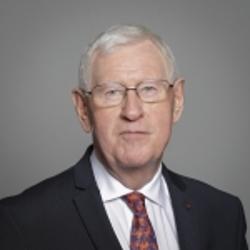Special Educational Needs: Autism
(asked on 12th December 2017) - View SourceQuestion to the Department for Education:
To ask Her Majesty's Government what plans they have to ensure that schools are equipped to support pupils with autism to thrive.
The government welcomed the recent ‘Autism and education in England 2017’ report from the All Party Parliamentary Group on Autism (APPGA), which recommended the creation of a national strategy for autism. We will consider the recommendations of the report carefully, alongside those of other recent reports such as the attached ‘Lenehan Review’ of residential special schools. These reports will inform our plans for supporting children and young people with special educational needs and disabilities (SEND). Officials are meeting representatives from the National Autistic Society in January 2018 to discuss the APPGA’s report.
Local councils have a statutory duty, under the Children and Families Act 2014, to identify needs in their local area and to commission, together with partner agencies, services to support children and young people with SEND and their families. This includes services for children and young people with autism. These services must be included in each council’s ‘local offer’ of available services, which must be reviewed regularly, in consultation with local families, taking their views into consideration.
The department has funded the Autism Education Trust (AET) since 2012 to deliver autism training to early years, schools and post-16 education professionals in England. The AET has now trained more than 150,000 education staff. This includes head teachers, teachers and teaching assistants, as well as support staff such as receptionists and dining hall staff, encouraging a ‘whole school’ approach to supporting children and young people with autism. The department will shortly begin discussions with the AET to consider an extension to their current contract.
The department published a new framework for Initial Teacher Training (ITT) content in July 2016. The framework, attached, includes specific content on SEND, including autism, and is available for training providers to use. This twin approach of ongoing work in schools to increase awareness of autism through training, while also ensuring that new teachers are equipped to support pupils with autism from the outset, is designed to ensure that children and young people can succeed in their education. The department does not hold data on the numbers of teachers who have been trained by the AET or who have been through ITT courses that reflect the new ITT framework.
All academies and local authority maintained schools in England are expected to admit children and young people with SEND, including those with autism, whether or not they have an Education, Health and Care (EHC) plan. They cannot refuse to admit a pupil simply because he or she has a SEND. In 2016, there were 630 maintained special schools and 32 non-maintained special schools in England approved to make provision for pupils with autistic spectrum disorder. In addition, under the department’s free schools programme, there are now 29 special free schools open in England, including 17 which cater specifically for children with autism. These include the Rise Free School in Hounslow and the Lighthouse Free School in Leeds. A further 22 special free schools are due to open in future, 12 of which will specialise in provision for children with autism, including the Cumbria Academy for Autism and a second National Autistic Society free school, the Vanguard School in Lambeth. The other schools will offer some places for children with autism.
In March, the government announced that it would make available £215 million of capital funding to support the expansion of existing provision as well as the development of new schools for pupils with EHC plans.

